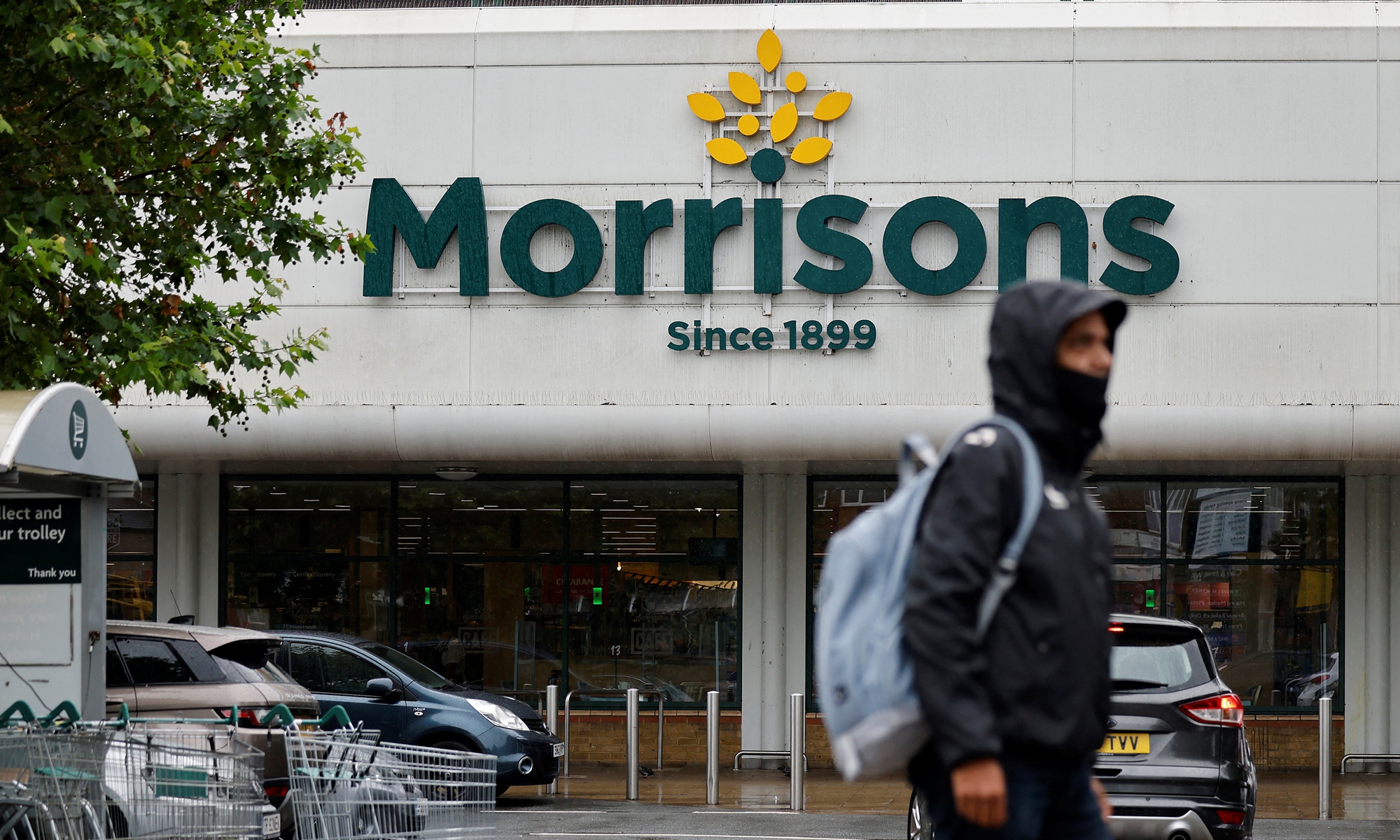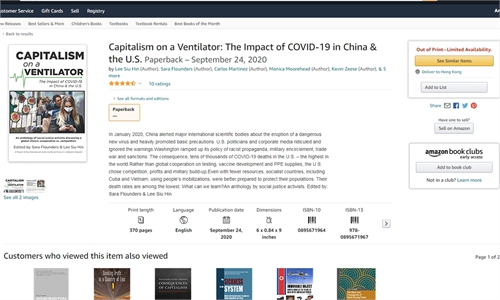Property, cash and Amazon: Why buyout firms are battling to buy UK supermarket Morrisons

A man walks past a Morrisons supermarket in Stratford, east London on June 21. Photo: AFP
At least three private equity groups armed with foreign cash have lined up to do battle over Morrisons, a British supermarket with a big property portfolio and a deal with Amazon that could help scale up its lagging online offerings.
Interest in the chain, which has recently notched up market share in Britain's cutthroat grocery business, partly reflects private equity's newfound passion for UK Plc, as the nation rebounds faster than expected from Brexit and the COVID-19 crisis.
Yet Britain's No.4 grocer may offer more potential than some rivals. Alongside a big property portfolio and strong cash generation, Morrisons supplies Amazon Prime members with same-day food deliveries.
"Morrisons on Amazon" now accounts for over 10 percent of sales in the majority of Morrisons stores where it is offered. The tie-up is helping a chain that has been a laggard in the booming online market, and that alliance adds to the attraction for a buyer.
New York-based Apollo said on Monday it was weighing an offer for the chain, which began 122 years ago as a market stall in the northern English city of Bradford.
Its interest was announced after a group led by Fortress, owned by Japan's SoftBank, agreed on terms for an $8.7 billion offer. Last month, an unsolicited proposal from US group Clayton, Dubilier & Rice was rejected.
Online link-up
The Amazon deal dates back to 2016, when the world's biggest retailer linked up with Morrisons to gain a foothold in Britain, the world's second-biggest market for online food retail.
Morrisons is unique among British supermarkets in making half of the fresh food it sells, so it can provide wholesale supplies to Amazon while also packing orders that the US online giant delivers to its Amazon Prime customers.
The deal has sparked speculation that Amazon could buy Morrisons to turbocharge its own offering in Britain's food business, a fiercely competitive sector worth 212 billion pounds ($294 billion) a year.
But one investor in British supermarkets, who asked not to be identified, said Amazon would still have to make a case for such an acquisition. "If I was an Amazon shareholder, I'd want to know why that is preferable to some of the other things they could spend their money on," he said.
Amazon, which declined to comment, has previously said it kept its options for investments in Britain under review. It already owns 12.6 percent of British takeaway delivery company Deliveroo.
The Morrisons battle is part of a broader revaluation of British assets, weighed down for years by uncertainty about Britain's exit from the EU but with the outlook now clearer after new trade arrangements began in January.
The world's top private equity groups, flush with cash after largely sitting out the pandemic when markets were volatile, now believe they can price assets, even with limited visibility on the recovery. Britain, they believe, is looking cheap.
More M&A
London-listed companies are undervalued compared with US and European peers, with the FTSE 100 trading on average at 13 times the 12-month forward earnings of its companies, while the S&P500 trades at 21 times and the STOXX 600 at 17 times.
Merger and acquisition (M&A) deals hit a record high in the seven months to July 5, with deals worth $181.7 billion targeting British firms, Refinitiv data showed. Deals led by private equity firms to take British firms private surged to an all-time peak of $27.7 billion, after plunging to a record low of $1.1 billion in the same period last year amid the depths of the COVID-19 crisis.
The race for Morrisons began three months after private equity group TDR with investors Zuber and Mohsin Issa completed their purchase of Asda, the UK's No.3 supermarket.
Asda's new owners merged its gasoline stations with their existing fuel business and sold distribution assets to real estate investors to help finance the deal.
Morrisons had free cash flow of 238 million pounds in the financial year before the pandemic, which private equity tends to value more than public markets.
The acquirer of Morrisons, which owns 85 percent of its nearly 500 stores, could look to sell and lease back property to generate cash after a deal goes through.
Making a better business
But such a strategy might not win a broad welcome.
"If an acquirer makes strong returns, this should come from making the company a better business," said Andrew Koch, senior fund manager at Legal & General Investment Management, Morrisons' No.8 shareholder according to Refinitiv data.
"It should not come from buying its property portfolio too cheaply, levering the company up with debt, and potentially reducing the tax paid to the Exchequer," he said, adding Morrisons should declare the value of its stores and distribution centers.
Britain's opposition Labor Party and unions have already voiced concerns about a hit to jobs and investment, although a spokesman for Prime Minister Boris Johnson has said takeover proposals were a commercial matter.
Fortress, whose offer has been recommended to shareholders by the Morrisons board, has pledged to retain the grocer's headquarters, management and strategy.


